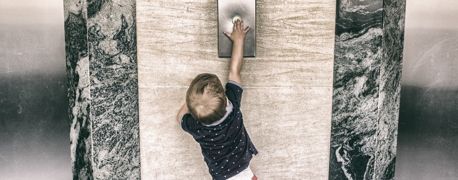What Are Special Damages?

When someone is seriously injured, or when a life is tragically lost because of another party’s negligence or misconduct, the legal system provides a way to seek justice: filing a personal injury or wrongful death lawsuit. These civil (i.e., not criminal) claims allow injured individuals or surviving family members to hold at-fault parties accountable, not only by exposing wrongdoing but also by pursuing the compensation needed to rebuild and recover.
Of course, no amount of money can truly undo the pain of a devastating injury or the grief of losing a loved one. But a successful lawsuit can ease the financial burdens caused by these tragedies, offering a measure of justice and forcing companies, insurers, or individuals to take responsibility for the harm they caused.
The compensation awarded in these cases is known as damages. In a legal context, “damages” are the monetary amounts assigned to the various ways an injury or loss has impacted someone’s life. This includes not only physical and emotional suffering but also financial consequences, like medical expenses and lost income.
There are three broad categories of damages in personal injury and wrongful death claims: economic (special) damages, non-economic (general) damages, and in some cases, punitive damages. Each serves a different purpose, and we’ll cover each of these types of damages in more detail below. But today, we're focusing on one of the most important—and often misunderstood—of these: special damages.
Understanding The Three Types of Personal Injury Damages
To fully understand special damages, it’s important to know the three types of personal injury damages and what they cover.
In personal injury (and wrongful death) cases, the three different types of damages include the following:
- General Damages – General damages cover the cost of intangible losses, such as pain and suffering, mental anguish, loss of companionship, and reduced quality of life. Determining general damages is often complex, as it requires you to place a dollar value on something highly subjective. These are often referred to as “non-economic” damages, because they do not have a set economic value.
- Special Damages – Special damages cover the cost of tangible losses, such as hospital bills or lost wages. But make no mistake; just because these damages have a set dollar value, this does not mean that they are easy to calculate. While adding up hospital bills and lost earnings may be relatively straightforward, special damage calculations become much more complicated when you try to anticipate future care costs and lost earning potential.
- Punitive Damages - Also known as exemplary damages, these result from particularly negligent or willfully harmful actions. Punitive damages are rarely awarded, but the court may use this third type of damages as punishment when the defendant intentionally or recklessly caused harm.
General and special damages are both considered “compensatory damages” because they are meant to help cover the losses associated with an injury or death. In contrast, punitive damages are meant to, hopefully, deter future harm by punishing the defendant beyond the cost of compensatory damages.
Recommendation for further reading: Difference Between Compensatory & Punitive Damages.
What Losses Are Covered by Special Damages?
A serious injury comes with more than just physical pain and emotional suffering. Victims often require emergency medical attention and ongoing care. They may need physical therapy and rehabilitation, surgery, prosthetics, and other costly medical treatments. Often, they are unable to work as they recover from their injuries, and many victims of catastrophic injuries will never be able to work again, either in the same capacity or at all, meaning they’ll lose a lifetime of expected income.
In short, injuries are expensive. The purpose of special damages is to help offset the costs of treating and living with an injury.
Special damages cover things like:
- Hospital bills
- Medication costs
- Copays
- Projected future medical care
- Lost wages, income, and benefits
- Lost earning capacity
- Lost future earnings, including wages, income, and benefits
It is easy to place a value on things like hospital bills and other treatment costs because those expenses have already happened. When it comes to future medical care or lost earning capacity, however, it is easy for your claim to be undervalued. That’s why your choice of a personal injury attorney is crucial. The right attorney will take every step necessary to make sure whatever compensation you receive not only covers your immediate needs but also any long-term care or decreased earning potential that you will experience.
Examples of Special Damages
Special damages vary considerably from case to case. In many instances, medical care accounts for the main portion of special damages, but lost earnings (particularly potential earnings) can add up quickly as well.
Here is a basic example of how special damages may look in a car accident case:
- Hospital bills: $50,000
- Chiropractic care: $5,000
- Medication and medical supplies: $2,000
- Transportation to and from medical appointments: $1,000
- Follow-up medical appointments: $3,000
- Physical therapy: $10,000
- Lost wages while injured and recovering: $30,000
- Lost wages for follow-up appointments and therapy: $5,000
- Total: $106,000
The above are made-up numbers for this blog, but they offer insight into a few of the categories that may be considered for special damages. As you can see, compensation for special damages could add up to a considerable amount of money, depending on the severity of injuries and the ongoing impact they may have on a person’s life.
Who Is Responsible for Paying Special Damages?
Special damages should be paid by the party (or parties) who caused the plaintiff harm. In many cases, damages are paid by the at-fault party’s insurance company, but we will consider all potential sources when seeking compensation for a client. A driver who causes an auto accident, a trucking company that pressures its drivers into skipping breaks, a doctor who makes a critical error during surgery, or a property owner that fails to maintain safe grounds are all examples of parties that could be held liable for the payment of special damages to a plaintiff in a personal injury lawsuit.
Are Punitive Damages Special Damages?
No; special damages involve tangible losses, while punitive damages are more subjective and are not necessarily connected with specific costs the victim has sustained. Special damages are tied to the harm caused by the defendant, while punitive damages are awarded in situations where the court wants to punish or make an example of the defendant.
A few examples of punitive damages won by Arnold & Itkin:
- $8 billion verdict won against Johnson & Johnson and its subsidiary, Janssen Pharmaceuticals. Despite having scientific data that showed that their medication, Risperdal, caused gynecomastia in young boys, Johnson & Johnson chose to withhold that information and marketed the drug off-label to children. Because they willfully chose to put profits before the safety of the young boys that they sold their drug to, the court decided that punitive damages were appropriate.
- $44 million verdict won for an amputee victim, which included $8.5 million in punitive damages. Our client, a construction superintendent, sustained catastrophic injuries in a crane accident. Berkel & Company prioritized finishing a drilling project quickly over our client’s safety, which eventually led to a crane collapse. Because standard safety practices were violated in the name of efficiency, punitive damages were awarded. The verdict also included special damages, which covered the medical expenses and loss of earning capacity our client incurred.
Can You Receive Special Damages Along with Other Types of Damages?
Yes; because each type of damages aims to compensate the plaintiff for different types of losses, it’s possible—and relatively common—for plaintiffs to be awarded multiple types of damages.
For example, imagine an electrician is driving home from a job site when he’s struck head-on by a commercial truck whose driver fell asleep at the wheel. He suffers multiple fractures, a traumatic brain injury, and is hospitalized for weeks. Even after surgery and months of rehabilitation, he’s left with lasting cognitive impairment and limited mobility in his right leg. He can no longer work in his trade, can’t coach his child’s soccer team like he used to, and now lives with chronic pain.
In this case, special damages would cover his quantifiable financial losses, things like his emergency medical care, follow-up treatment, lost income, future lost earning capacity, assistive devices, and even the cost of in-home care if needed. These are all concrete, documented expenses that can be tracked and proven.
But that’s only part of what he’s lost.
In this scenario, the injured electrician might also be awarded general damages for the profound emotional and physical impact the accident had on his life. These damages acknowledge his pain, the mental distress of no longer being able to support his family in the same way, the loss of enjoyment of everyday activities, and the ongoing suffering tied to his injuries.
While special damages deal with the math, general damages deal with the meaning. Together, they form a more complete picture of the harm done, as well as the compensation needed to begin putting a life back together.
In rare and extreme cases, punitive damages may also be available, but only when the defendant’s actions are proven to be willful, malicious, or grossly negligent. For example, if the trucking company had a long record of ignoring driver fatigue violations, that might open the door to punitive damages as a form of punishment and deterrence.
Ultimately, the law allows for multiple types of damages because no one suffers in just one way. After an accident, you deserve to be compensated for all the suffering you experience, whether mental anguish or medical bills.
You Need the Right Attorney. No Matter What.
After someone’s negligent or reckless behavior leaves you injured, you need a personal injury attorney who will fight for what you need now and in the future. Even though special damages are tied to monetary losses, that doesn’t mean that their calculation is less subjective than general damages.
The nationally recognized personal injury lawyers at Arnold & Itkin have a reputation for getting clients the compensation they need for the rest of their lives. No matter what. Time and time again, we have seen the same circumstances—whether it is a plant explosion, offshore disaster, or truck accident—yield vastly different compensation. When we take your case, we take it personally. We won’t settle for less than you deserve, and we will go above and beyond in our efforts to help you fight to maximize your recovery.
If you want to know more about the damages you might be able to recover, watch What Is My Case Worth? in our video center or call (888) 493-1629 to discuss your situation in a 100% free case review.
- Categories


